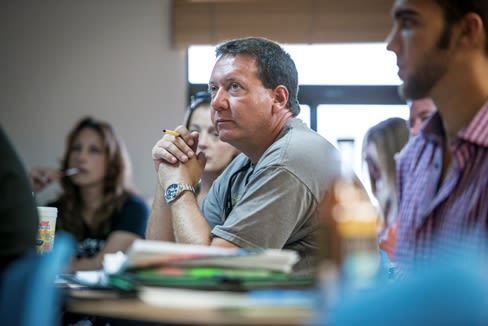Green Rush
Medical marijuana is not legal yet, but Florida entrepreneurs are already high on its business potential.
By David Ball
Photography by Chris Lake
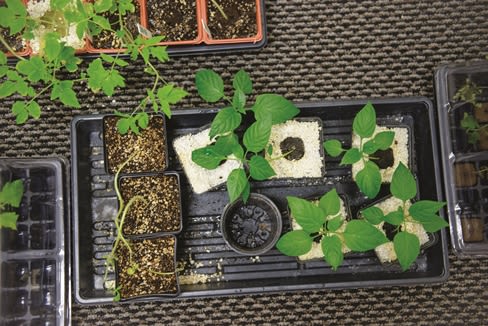
BEHIND AN UNMARKED DOOR in a small office building on North 56th Street in Temple Terrace, just outside Tampa, 14 people pack a tiny classroom to earn what they hope will be their golden ticket into a burgeoning Florida industry. In the back, Patsy Rogers, a 40-year veteran nurse from Plant City, scribbles down notes.
“I’ve had a desire to do this kind of work for a while,” Rogers says during a break in class. “I’ve seen this help people. It’s helped my own family. If anybody is against this, they just don’t understand what it can do.”
Rogers’ classmates are strikingly diverse, a multi-racial group that includes teenagers with school binders, 30-somethings powering up their iPads and middle-aged professionals clutching yellow legal pads. Some are dressed casually. Some look like they just came from the office. One man has tattoos across the top of his head. No one is from Sarasota or Manatee, or at least they aren’t willing to say they are. In fact, most students refuse to divulge anything at all about themselves.
____________________
It could cost $500,000 to set up a medical marijuana grow operation or dispensary.
____________________
Despite their apparent cultural and likely political differences, they are all there for the same reason: to learn to grow and sell pristine, high-potency, medical-grade pot. Their teacher, Carlos Hermida, a self-described “professor of cannabis,” looks the part with frayed jeans, tennis shoes and a laid-back, monotone voice. But the lesson is serious.
“Have a close and personal relationship with your plants. Talk to them,” says Hermida, while photos of hydroponically grown marijuana display on a television next to him. “Don’t overwater them. It’s the biggest mistake new growers make.”
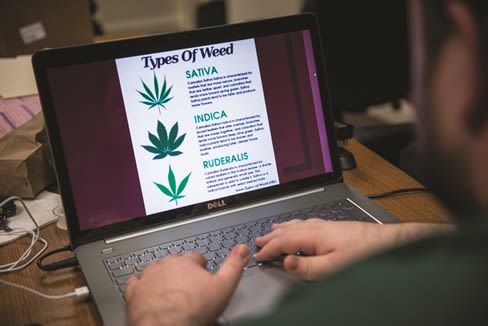
The class is conducted by Medical Marijuana Tampa, a venture launched in February by Jerry Bufford, a former Tampa IT consultant who has ambitious plans to open medical marijuana treatment centers—commonly known as dispensaries—and hire 350 employees in Florida by mid-2015. The classes teach people about the business, and students may end up growing pot and selling it to the dispensaries or opening their own dispensary.
They are among Florida’s first wave of would-be “ganjapreneurs” looking to stake their claim in the coming green rush of medical marijuana. They believe voters will pass a constitutional amendment in November making Florida the 21st state, along with the District of Columbia, to legalize pot for medicinal use. Polls show a majority of Florida residents favor the measure, which has been spearheaded and bankrolled in large part by prominent Orlando attorney John Morgan.
If the amendment passes, it will usher in what could be a $758-million industry, according to the National Cannabis Industry Association. That would make Florida the second-largest market in the nation, with California the first. Job numbers are hard to estimate, though Colorado’s medical marijuana market created between 5,000 and 10,000 jobs, the association reports. Florida’s market could be more than twice that, with a projected 260,000 patients spending more than $3,000 annually on marijuana. That’s in part because of Florida’s large elderly population, who could potentially use medical marijuana to alleviate symptoms of conditions ranging from cancer to Crohn’s disease.
Those industry estimates also don’t include the millions projected to be spent on growing operations, real estate, security, advertising and other supplementary services. The numbers are driving Florida entrepreneurs, lawyers, doctors and others to get organized, form new corporations, attract investors and start marketing a still illegal industry that carries plenty of risks and even more unknowns.
That worries at least one prominent leader in the decades-long marijuana legalization movement. Norm Kent, a Fort Lauderdale attorney and immediate past president of the National Organization for the Reform of Marijuana Laws (NORML), says that many fortunes could be made in Florida in the coming years, but just as many fortunes could be lost.
“I’m really worried they are counting their chickens before they hatch,” Kent says. “People who say they would vote for medical marijuana laws in Florida are usually not voters come Election Day. They’ll be sitting home smoking a joint instead of going to an election booth.”
____________________
Estimated impact of medical marijuana in Florida: $758 million industry | 10,000-20,000 jobs | $3,000 average annual expenditure per patient on medical marijuana.
____________________
If the law passes, the Florida legislature and Department of Health will have to develop regulations for the industry, such as how medical marijuana patient ID cards are issued, how many plants—if any—people are allowed to grow, how those plants are tracked, and what kinds of fees are associated with opening a dispensary or growing operation. Those rules could take up to nine months to write after the law goes into effect in January.
Kent has been bombarded with calls from people already looking to start a medical marijuana corporation or even sell franchises. To deal with the interest, Kent set up a side business, Florida Cannabis Consultants, as a clearinghouse for information for consumers and businesses on the law and possible scams.
“I’m trying to protect people from the scam artists that are inevitably going to play their hand,” Kent says. “With people selling franchise rights at this time, it’s so premature and improper that individuals need guidance to understand what the regulations will be.”
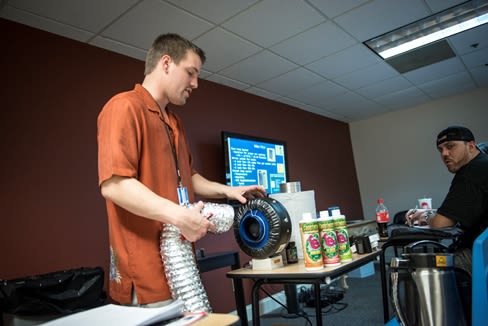
Kent charges $500 for a 90-minute consultation. He said if the law passes and Florida sets up heavy regulations and restrictions where it would cost nearly $500,000 for a grow operation or dispensary to be set up (which is expected), he could see those businesses paying his firm up to $100,000 to set up business plans, offer legal advice and handle all the state and local regulatory hurdles. He consults with at least 10 people a week. “It has been consuming,” Kent says. “Some people have offered me $50,000 to work exclusively for them, but I have turned them down.”
Counties and municipalities could issue their own restrictive rules and fees, a likelihood in a conservative area like Sarasota, Kent says. Much also will depend on the governor’s election in November. Incumbent Republican Gov. Rick Scott has opposed medical marijuana, while his likely opponent, Democrat Charlie Crist, has been supportive. Crist currently works for John Morgan’s law firm.
“As long as the legislature remains in the Republicans’ hands and you have a governor appointing people to positions of authority in [the Department of Health], this election could greatly affect how this all shakes out,” Kent says.
In Sarasota and Bradenton, few politicians have spoken about the prospect, although Sarasota County Sheriff Tom Knight has expressed opposition to the amendment during debates and in newspaper op-eds. No area-based businesses have made themselves public yet; however, a publicly traded Arizona company, Cannibis Rx, recently purchased three industrial buildings near Sarasota Bradenton International Airport that are intended to be renovated and leased to medical marijuana growers.
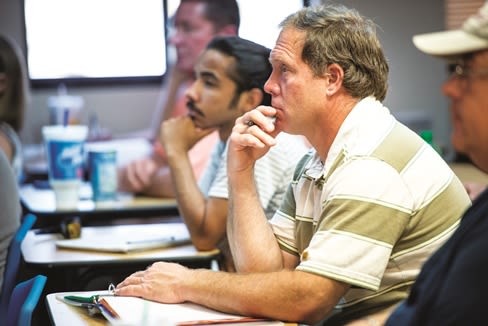
There is movement elsewhere in Florida, based on the number of new marijuana-related corporations and businesses being registered with the state. In December 2013, seven active entities with names containing the words “marijuana” or “medical marijuana” or “cannabis” were registered with the Florida Division of Corporations. Two months later in February 2014, just after the Florida Supreme Court approved ballot language for the medical marijuana constitutional amendment, there were 31. In March, the total was 47. By May, the total had more than doubled to 108.
Many of those filings are likely by people hoping to sell the name sometime in the future, says Bufford of Medical Marijuana Tampa, who registered his company under the name Crowdsmart Inc. fairly early on, in May 2013. Bufford says his goal was to be the first company in Florida operating in the medical marijuana industry, even before the industry technically existed.
“It’s the opportunity to operate under our business name for an entire year while everybody else is figuring out what they want to do,” says Bufford, 33. “We are hopefully positioning ourselves as a trusted place to get your education around medical marijuana, and hopefully we can parlay that into being the trusted place to get your medicine once the law allows.”

All Bufford can legally do now is teach students, who pay $499 for a month-long class about how marijuana is grown (they use tomatoes and peppers as real-life demonstrations), how dispensaries work in other states and what Bufford anticipates the Florida industry will look like. But as soon as the law is passed, Bufford expects to open up to 15 dispensaries at properties he has already identified across central and west Florida.
Bufford says he has put up the six-figure seed money on his own, though he is now looking for another $10 million through private investors—a necessity, since banks are unwilling to loan to businesses operating what is still an illegal venture on the federal level. The U.S. Department of Justice recently issued new guidelines for banks to work with businesses in states where medical marijuana is legal, though that hasn’t done much so far.
The cost of doing business in medical marijuana differs across the states. In California, the first state to approve it in 1996, a wide-open market with little regulation has led to hundreds of dispensaries and lax oversight. In Illinois, state regulations limit the number of dispensaries and growing centers and require businesses to pay $500,000 in licensing fees and other startup costs.
____________________
"It's not going to be like California, where there is a mom-and-pop dispensary on every corner."
____________________

Bufford expects similarly stringent and expensive regulations in Florida, which would eliminate many entrepreneurs right out of the gate.
“It’s not going to be like California, where there is a mom-and-pop dispensary on every corner. It’s just going to cost too much,” he says.
That might put a damper on some of Bufford’s students’ plans. Rogers, the nurse from Plant City, has 10 acres she hopes to use to grow marijuana and eventually open her own dispensary. She was turned on to the potential for medical marijuana after family members used it to ease the pain and nausea of chemotherapy.
Two other Medical Marijuana Tampa students, 30-somethings Jeffrey Hanstein and Noel Morris from Tampa, say they want marijuana to be a career they can make money in and also feel good about.
“I’m actually in the tobacco industry right now, in retail selling loose-leaf tobacco,” Hanstein says. “I want to put my energy into something positive, something that will actually improve people’s quality of life.” ■
